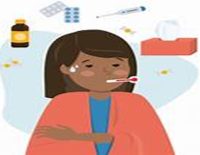Breathless Delhi, Mask Up: Health Experts

As severely-polluted air has choked the capital city Delhi, health experts have warned people that it can cause a range of health problems, including respiratory infections, heart disease, skin allergy and eye infection. The hospitals in the city have been witnessing an increase in the number of patients suffering from respiratory and breathing complications for the last few days.
Emphasising the use of masks to prevent the harmful particulates inhaling inside while breathing, doctors said that the impact of air pollution ranges from lungs to other important organs like brain stroke, autoimmune diseases and premature birth among others. “Masks have never gone out of fashion since the COVID-19 pandemic. Earlier it provided protection from the virus, and now it has a crucial role in controlling the pollutants we breathe in”, said Dr Shuchin Bajaj, Director Ujala Cygnus group of Hospitals, advising people to avoid going outside if not necessary.
While the harmful effects of pollution on our respiratory and cardiovascular systems are widely acknowledged, its impact on skin often goes unnoticed, said Dr Bhawuk Dhir, Director and Consultant Dermatologist, Dermadex Clinmic. He said that the Particulate Matter (PM2.5, PM10) and UV radiation creates free radicals and oxidative stress, which break down collagen and elastin, leading to fine lines and wrinkles.
“Melasma, characterized by dark patches on the skin, is aggravated by UV radiation and ozone exposure. Pollution can trigger this condition. Individuals with sensitive skin may experience worsened conditions like eczema, rosacea”, said Dr Dhir. He advised that foods high in vitamins A, C, and E, as well as beta-carotene can benefit skin. Consume fruits and vegetables rich in antioxidants, like berries, citrus fruits, and leafy greens to support skin’s health, he said.
Air pollution also causes irritation, tearing, itching and discomfort in the eyes that can be avoided by washing the eyes more frequently and wearing protective glasses. Dr. Ajay Sharma, CMO, Eye-Q Super specialty Hospital, advised to wear protective eyewear which act as a formidable shield against harmful airborne particles and from impact of UV rays. “Regular cleansing with clean water helps remove pollutants. Staying adequately hydrated is key to keep eyes moist and healthy”. He also advised to have balanced diet rich in essential nutrients like leafy greens, carrots, and fish to protect from pollution.








Comments